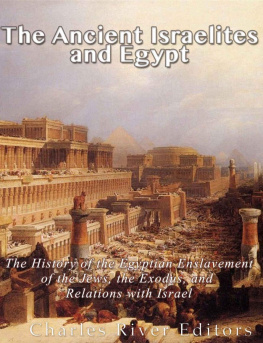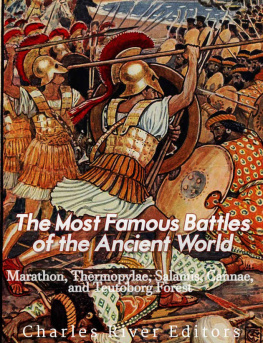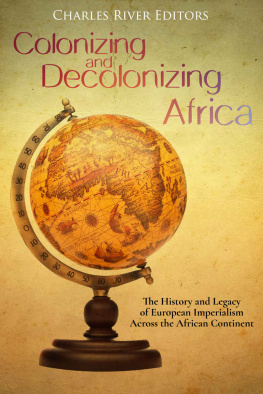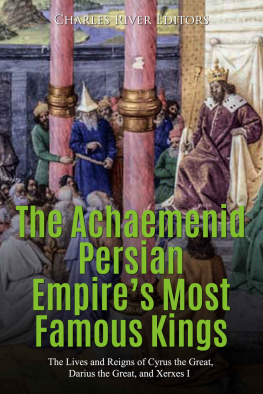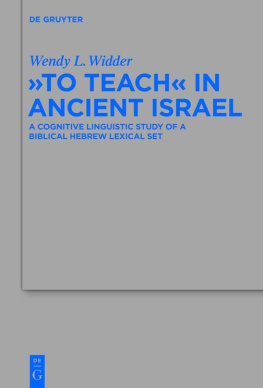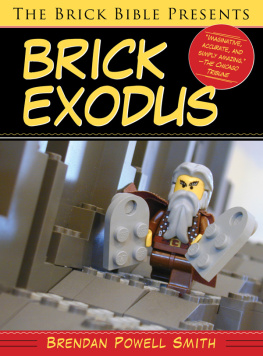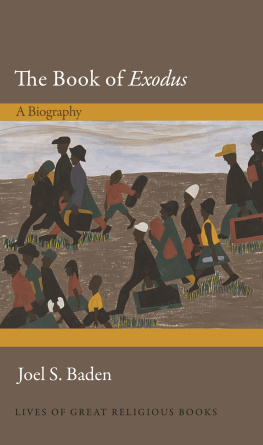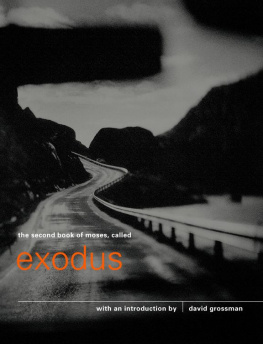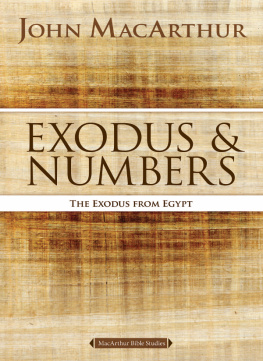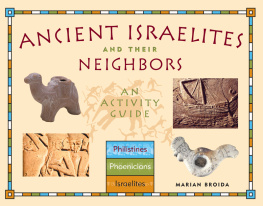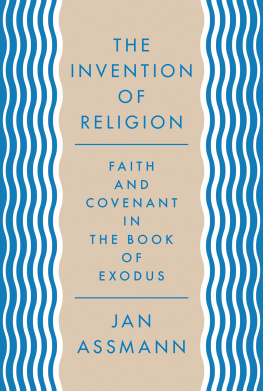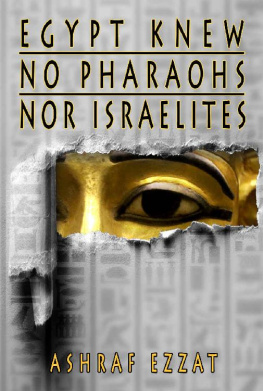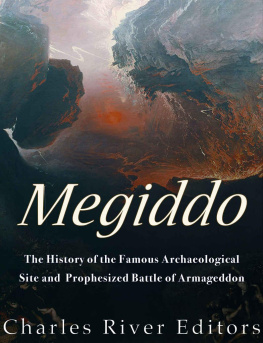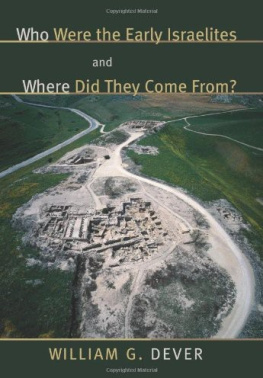Charles River Editors provides superior editing and original writing services across the digital publishing industry, with the expertise to create digital content for publishers across a vast range of subject matter. In addition to providing original digital content for third party publishers, we also republish civilizations greatest literary works, bringing them to new generations of readers via ebooks.
Sign up here to receive updates about free books as we publish them , and visit Our Kindle Author Page to browse todays free promotions and our most recently published Kindle titles.
Introduction

"Crossing of the Red Sea", Nicholas Poussin
The Israelites in Egypt
And the Lord said to Moses, Why do you cry to Me? Tell the children of Israel to go forward. But lift up your rod, and stretch out your hand over the sea and divide it. And the children of Israel shall go on dry ground through the midst of the sea. And I indeed will harden the hearts of the Egyptians, and they shall follow them. So I will gain honor over Pharaoh and over all his army, his chariots, and his horsemen. Then the Egyptians shall know that I am the Lord, when I have gained honor for Myself over Pharaoh, his chariots, and his horsemen. Exodus 14
The story of the Ancient Israelites in Egypt is one of the most famous stories in the world, and one of the most contentious from a historical standpoint. Today, most people know about the relationship between the ancient Israelites and the Egyptians from the Old Testament book of Exodus, and the numerous feature films that often depict the dealings between the two peoples in contentious ways. The deadly plagues, the crossing of the Red Sea, the arduous 40 years the Israelites spent in the desert, and the Ten Commandments all make the Exodus unforgettable, but theyve also left generations of scholars wondering just how accurate the Scripture is, with some seeking to prove the historicity of the account and others trying to tie it to the Babylonian exile of the Israelites in the 7 th century BCE.
It is true that the Egyptians and Israelites had, at times, a difficult relationship that stemmed from Egypts status as an imperial power and the Israelites as a conquered people, but their shared history began long before the Biblical Exodus, and continued long after both peoples were no longer relevant as ancient powers. Indeed, a closer examination of the Israelites ties to Egypt reveals that there is more to the story than just the book of Exodus, and that the fortunes and miseries of the Israelites were often inextricably intertwined with that of their Egyptian neighbors.
The story of the Israelites in Egypt begins in the first book of the Old Testament, Genesis, when the Israelites were known as Hebrews, and ends after Egypt passed under foreign rule and the Israelites became known by their more modern appellation: Jews. The Old Testament provides the backbone of the ancient sources for the story of Israelite-Egyptian relations, but archaeological evidence from Egypt and the Levant, along with textual sources from Egypt and Mesopotamia, also provide a fuller picture of the two peoples geopolitical interactions. A study of the sources reveals that ancient Israelite-Egyptian relations were truly complex, and that the events of the Exodus were merely just a few in a series that ebbed and flowed, according to the desires and abilities of either people. Both the Israelites and Egyptians used their relationship with the other in order to obtain wider geopolitical objectives in the ever changing world of the late Bronze Age and early Iron Age Near East.
The Ancient Israelites in Egypt: The History of the Egyptian Enslavement of the Jews and the Exodus to the Promised Land looks at the historical record behind some of the worlds most famous events. Along with pictures depicting important people, places, and events, you will learn about the Israelites in Egypt like never before.
Chapter 1: The Early Sojourn in Egypt
Thus saith Jehovah, the God of Israel, Let my people go
The history of the Israelites in Egypt began before the former were even known as Israelites. The ethnic-linguistic background of the ancient Israelite was similar in nature to several of their Biblical neighbors, such as the Canaanites and Phoenicians (Kuhrt 2010, 2:437). Like those two peoples, the Israelites were a Semitic-speaking, pastoral people. The specific language of the Israelites was Hebrew, which is why they were called Hebrews in the first book of the Old Testament.
Since the Bible is partly historical, chronicling the early migrations of the Hebrews and the rise and fall of the Kingdom of Israel, it is used as a historical text by most scholars of Israelite history. However, using the Bible as a historical source should be done with extreme skepticism, and ensuring corroboration with other sources, if possible, because, as Kuhrt noted, It is a complex, ideologically motivated compilation, within which stories were refashioned to drive home particular lessons of the past. (Kuhrt 2:417). The Bible also represents a finite period in the Hebrews/Israelites history, as it spans from the beginning of the world until the rise of the Achaemenid Empire in the 6th century BCE, with the books finally being fixed as they are today in the 2nd century BCE (Kuhrt 2010, 2:418). Therefore, despite the inherent problems with using the Bible as a historical source, it provides a good window into how the Israelites viewed ancient Egypt and their relationship with the Egyptians, and the historical details mentioned in the Bible are important, especially when they are corroborated by Egyptian and/or other Near Eastern sources. Indeed, the Bible helps depict some of the nuances of the complex geopolitical relationship between the ancient Israelites and Egyptians.
The earliest Biblical accounts of the Hebrew/Israelite-Egyptian relationship begins with Abrahams descent into Egypt in the book of Genesis, and his son Josephs subsequent rise as the pharaohs right-hand man. Modern scholars believe that the events of Genesis 12:10-19 took place sometime around 2100 BCE, which was contemporary with Egypts Tenth Dynasty of the Middle Kingdom (Redford 1992, 258-9). The first Biblical interactions between the Hebrews/Israelites and the Egyptians came when Abraham and his wife, Sarah, traveled to Egypt in order to avoid famine. The passages read, And there was a famine in the land: and Abram went down into Egypt, that he said unto Sarai, his wife, Behold now, I know that thou art a fair woman to look upon: Therefore the Egyptians shall see thee that they shall say, this is his wife: and they will kill me, but they will save thee alive. (Gen. 12:11-12).

A painting of Abraham by Jzsef Molnr


